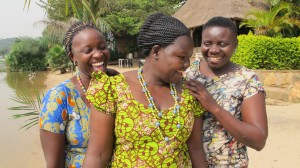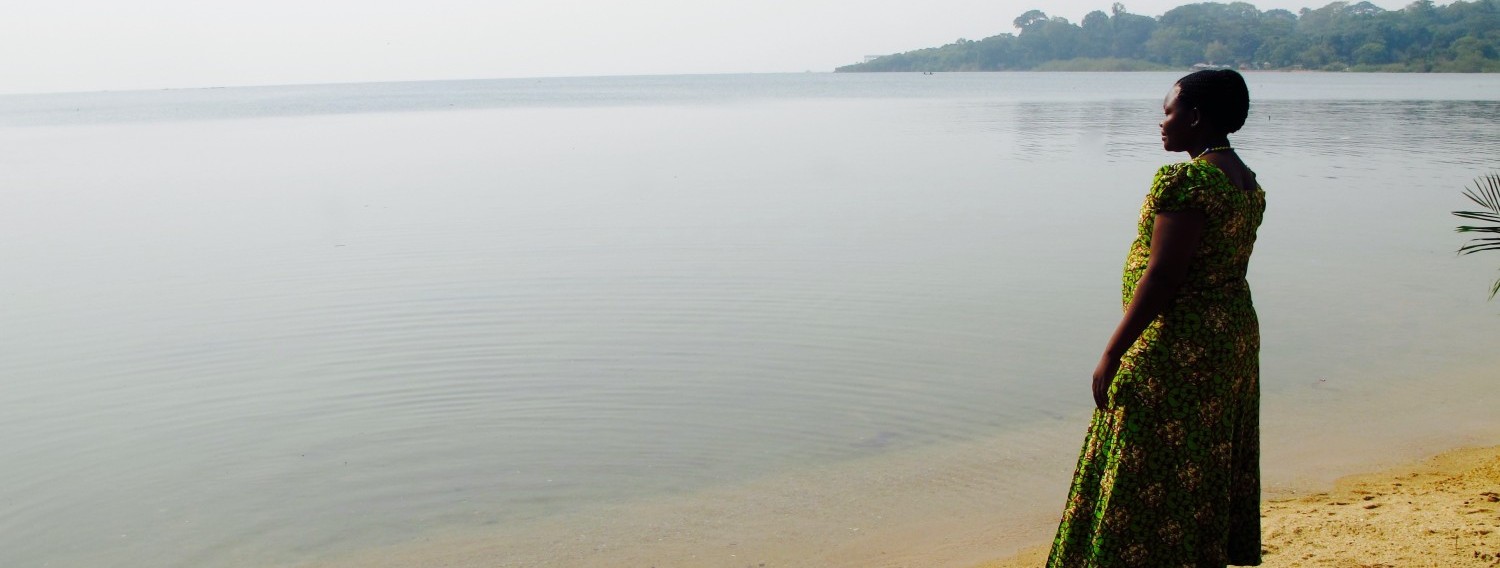WAN works to support women who survived abduction and forced marriage during the war, as well as women and men who suffered disproportionately during the war, to help them rebuild their lives through a variety of activities including:
Livelihoods – Due to abduction and the war, many of our members lost out on completing an education, and lost out on learning vital skills for obtaining a steady job. Many work in the economic margins, for instance hiring out their labour to work in another person’s agricultural fields, porting water or firewood, or conducting petty trade.
WAN pursues a va riety of income-generating activities to support our members, and build their capital to support their families. For instance, we train and generate funds to hold savings circles, purchase, raise and trade livestock, and make and sell goods on the market, including our beautiful paper beads (worn left), and sewn dolls and lap top bags.
riety of income-generating activities to support our members, and build their capital to support their families. For instance, we train and generate funds to hold savings circles, purchase, raise and trade livestock, and make and sell goods on the market, including our beautiful paper beads (worn left), and sewn dolls and lap top bags.
2. Education for children born of forced marriage or war – Most of our members had children when they were very young, and lack the familial or spousal support to raise them. Their children are often identified with the rebels, and experience social stigma and exclusion. One of the greatest struggles is to pay school fees, or send them to good boarding schools where they might escape social stigma. As one woman said, ‘the children are our future’.
WAN places a priority on finding sponsors to send their member’s children to good boarding and day schools. We currently are helping 7 children attend private schools and our target is to help another 13 children to enrol in school by the end of 2016. Included are school fees, school requirements, uniforms and food, extra-curricular activities and for students struggling in school, tutors.
3. Peer support – Because of the traumatic experiences we went through during the war, many of our members struggle with a variety of mental health issues, impacting their capacity to lead meaningful lives or provide for their children. When a member is in crisis, we rally to help her get back on her feet through peer counselling, providing care packages, and linking them with the means to access social and health services. Crisis can include depression, a sudden illness or death in the family, a conflict in the community or a marital break-up.
WAN seeks contributions that will assist us in our work to continue to offer peer support, including building a small fund that will be accessed to support transport, care packages and financial assistance to help women in crisis.
4. Health and disability – Many of our members were injured during the war, and live with chronic pain due to war-related injuries and illnesses contracted while in captivity (such as being hit by bomb fragments, bullets, walking long distances carrying goods, contracting Hep A or B, or HIV). Part of our global fund is used on a priority basis to assist women get holistic and long term care, including access to essential medicines or operations.
5. Paternal tracing and finding missing children – Many of the women in WAN lost children during the war, or have no contact with the paternal clans to their remaining children. We have conducted paternal tracing for a number of years, working to reunite families through slow and careful reconciliation efforts. We also support women seeking to learn where their missing children might be by supporting their tracing and travel.
6. Seek Reparations – Through our work with JRP, we will continue to organize women through peer support groups and to request for recognition and compensation.
WAN wishes to continue its activities through JRP in lobbying for reparations for its members.
